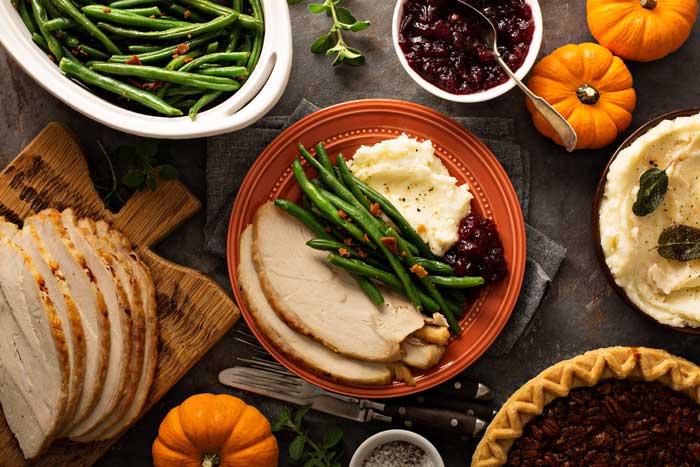By Sandy Baker
Thanksgiving is a time to bring family together to be thankful.
If you have a loved one in addiction recovery and trying to live a sober lifestyle, you may worry about the holidays. Should you skip any type of alcoholic beverage or can you just serve wine? What about that uncle that may just be downright angry if there isn’t a solid supply of beer when you’re watching all of the football games?
If you have a loved one that’s suffering from alcohol or drug addiction, it helps to take some measures to offer a safe place. You can still maintain the traditions that are important to your family, but you may need to make some changes to find a balance that respects everyone’s needs.
Talk to Your Loved One
As Thanksgiving approaches, make a point to have a discussion with your loved one about expectations and needs. Recognize that Thanksgiving (and the rest of the holidays to follow) can be very difficult for an individual in recovery.
It is not just the alcohol that can pose a problem. The stress of confronting loved ones and facing fears of judgment can be very difficult. Additionally, many individuals try to avoid social gatherings because they don’t want to be a burden.
During your conversation, talk to your loved one about the key concerns you have. For example, bring up the guest list. Is there someone who could cause a rift? If so, suggest meeting that individual in advance to work through their difficulties before everyone comes together for the day. If that’s not possible, make the right decision for you. Who is most important to have at your event? If both people are equally important to you, make it a point to stress the holiday isn’t the time to hash out problems.
Also, discuss the presence of alcohol. What do they feel is most important for this day? Some individuals don’t trust themselves in the presence of alcohol. Others may not worry about it. Ask them how you can make it enjoyable without being over-the-top.
Considerations for Alcohol at Events
For some people, alcohol isn’t a big deal. If a simple glass of wine is all that is usually present, it may not be necessary to make changes. Let your loved one know what your plans are.
If drinking is a large part of your celebration, consider scaling it back. Show the individual in recovery that you value their path of living alcohol-free and that you want to support them.
At the same time, you may not want to create an alcohol-free holiday. After all, at some point in their lifetime, they will need to be exposed to it. If the recovery process is going well, and you are confident your loved one can handle the exposure, make the decision that is right for you.
You can plan for other options, so your loved one never feels left out as well. Non-alcoholic wines and beers offer enough similarities that individuals don’t feel left out. Just about every alcoholic mixed drink and cocktail can be made using non-alcoholic ingredients. Perhaps pull out some fun drinks from the suggestions at SeriousEats.com. Be creative enough to involve everyone in the celebration.
Be Realistic
Individuals getting alcohol and drug treatment need consistency and realistic expectations. Avoid the pressure situations as much as possible during the holidays. If you’re expecting a picture-perfect Thanksgiving, you’re setting yourself up for a difficult time.
Consider these tips for maintaining a realistic level of expectations for the holiday:
- Allow individuals to excuse themselves when they need to. Individuals in recovery learn coping mechanisms to help them to avoid trigger events. Leaving the room may be one of them.
- Set the bar low in terms of what happens and who is present. Don’t put a lot of pressure on your loved one to contribute to the meal, conversation, or activities even if they are family traditions.
- When you see your loved one struggling, offer them a way out of the conversation in a tactful manner.
- Hold other loved ones without an addiction to a higher level. Discuss what you expect from them during the holiday in terms of showing respect, love, and forgiveness.
- Be sure your loved one is getting routine counseling and support during the months leading up to the holidays as well as the week of Thanksgiving. Just reaching out through a group therapy session, AA meeting, or even a family therapy session can make this day a success for everyone.
- Care for yourself throughout the holiday, too. You can’t do it all for everyone as a caregiver.








